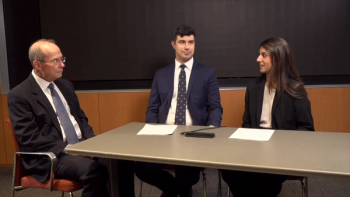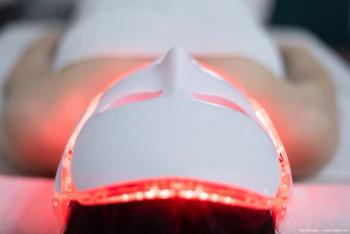
- Ophthalmology Times: September 15, 2020
- Volume 45
- Issue 15
Reducing burden on veterans undergoing cataract surgery
Streamlining preoperative process can offer some relief during stressful time
This article was reviewed by Ariana Levin, MD
The current preoperative requirement for a short evaluation regarding patient histories and physicals may offer an opportunity to streamline the preoperative process for patients scheduled to undergo a
In many cases, excess travel time and associated costs of lost work, food, and lodging place an unnecessary burden on patients who are not at high-risk of a complication associated with the surgery.
Related:
“One of our goals is to maximize accessible, affordable, and efficient care, and to do so we should reevaluate the requirement for preoperative histories and physicals for patients undergoing cataract surgery,” according to Ariana Levin, MD, a resident at the Moran Eye Institute at the University of Utah in Salt Lake City.
The preoperative requirements for this patient group have decreased over time in order to decrease unnecessary costs and waste. The savings positively impact the patients, physicians, surgery system, and the health care system.
The American Academy of Ophthalmology (AAO) stated “routine medical tests performed on patients before cataract surgery are unnecessary, because they do not increase the safety of the procedure.”
What remains now is the mandate for histories and physicals to be performed within 30 days of the scheduled cataract surgery. Levin pointed out that this is generally a 15-minute appointment that does not include an ocular examination, receipt of eye drops, or discussion of cessation of medications.
Related:
Considering the limits of this 15-minute appointment, Levin emphasized, some patients who attend the Veterans’ Administration facility in Salt Lake City can travel up to 5.5 hours for what is likely an unnecessary visit and suggested that telemedicine could play a future role in such an evaluation.
This 15-evaluation is not required in all VA facilities and some schedule it for the day of the cataract evaluation with an update on the surgical day.
However, despite this, Dr. Levin emphasized that the preoperative requirement must be streamlined even further.
A recent publication reported what should seem obvious, i.e., that cataract surgery is very safe for most patients, the few patients who do need further screening can be screened before the surgery, and the interventions that take place on the day of the surgery are generally for hypertension or bradycardia.1
Related:
Another study that compared the before-and-after effects of the preoperative history and physicals requirement based on a risk stratification questionnaire; in this study low-risk patients did not undergo the history/physical evaluation.2
The investigators reported that there was no difference found in the major medical events, and no events were associated with elimination of the history/physical visit.
“These observations show that the value of the history/physical evaluation is questionable, and our patients can travel a long distance,” she said and noted that the important consideration is not so much the burden on the health care system, although that is a concern, but the burden on the patients.
Surveys of patients treated at the Salt Lake City VA indicate that patients have a mean 1-way travel time of 96 minutes over 72 miles and a median 1-way travel time 60 minutes over 33 miles.
Related:
The other data are equally impressive in that 6.2% missed work, 23% had a family member who missed work. 8.6% had associated child and pet care costs, and 32% expressed concern about the cost of medical care. Patients tallied the costs of food, time, and time off work equaling about $300, Levin said.
“This is an opportunity to restructure preoperative requirements to decrease the burden on patients while maintaining superb patient care,” the investigators concluded. “While our institution is inside the VA system in Salt Lake City, these points likely apply to patients outside the VA system, especially in rural areas.”
---
Ariana Levin, MD
e: Ariana.levin@hsc,utah.edu
Levin has no financial interest in this subject matter.
--
References
1. Schein O, Pronovost PJ. A preoperative medical history and physical should not be a requirement for all cataract patients. J Gen Intern Med 2107;32:813-4.
2. Benoit BA, Wallace M, Toth G, et al. 529-39. Does eliminating the preoperative history and physical make a difference in low-risk cataract surgery patients? A before and after study of 30-day morbidity and mortality. Can J Ophthalmol. 2019;54:529-39
Articles in this issue
over 5 years ago
Persistent retinal detachment connected to retinoblastomaover 5 years ago
AI algorithms: a work in progressover 5 years ago
Targeting AMD patient treatment burdenover 5 years ago
Options give 1-2 punch to metastatic uveal melanomaover 5 years ago
Surgery during the COVID-19 pandemic: Staying sharpover 5 years ago
Boosting short-term dry eye management in patientsNewsletter
Don’t miss out—get Ophthalmology Times updates on the latest clinical advancements and expert interviews, straight to your inbox.





























